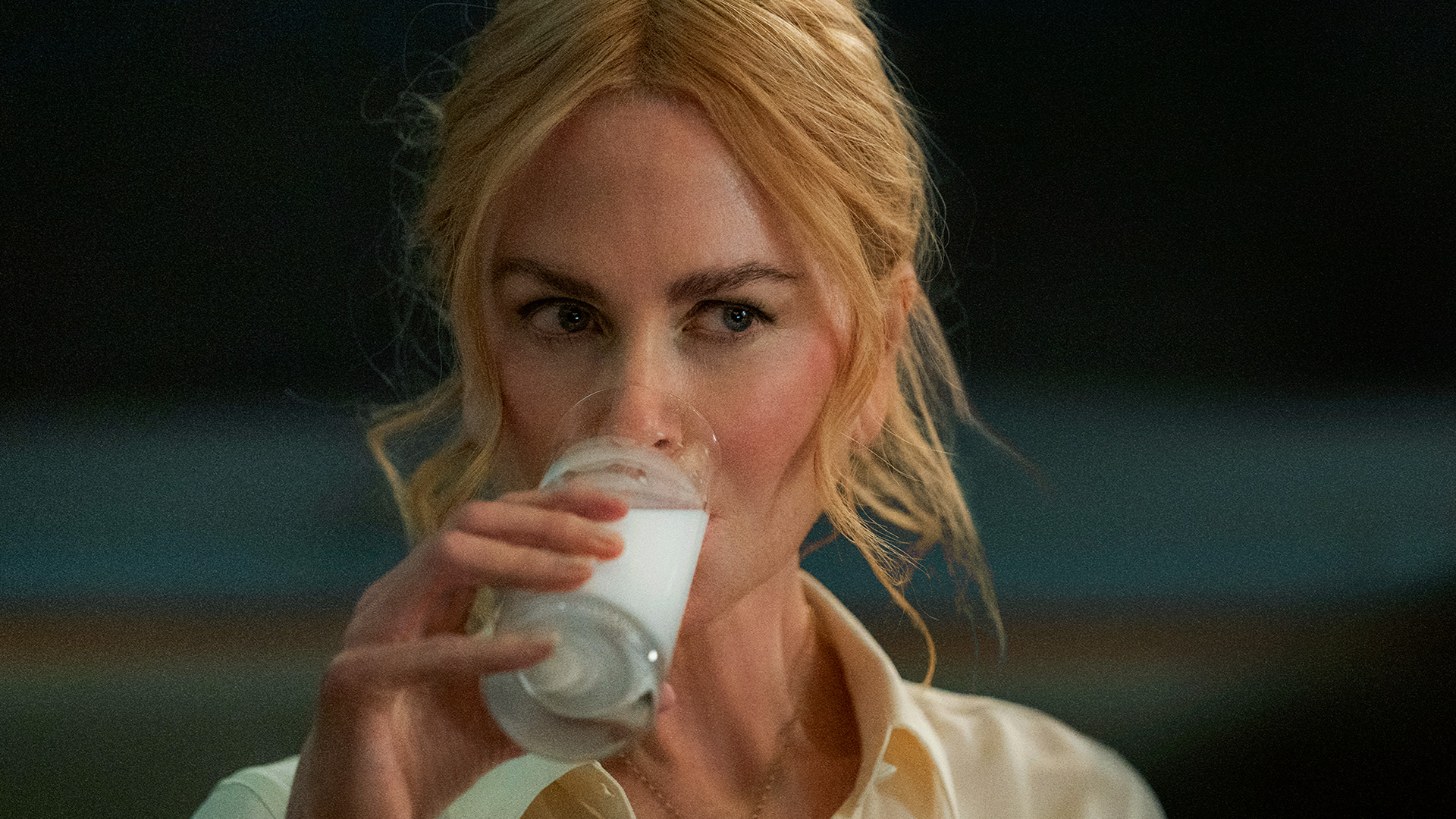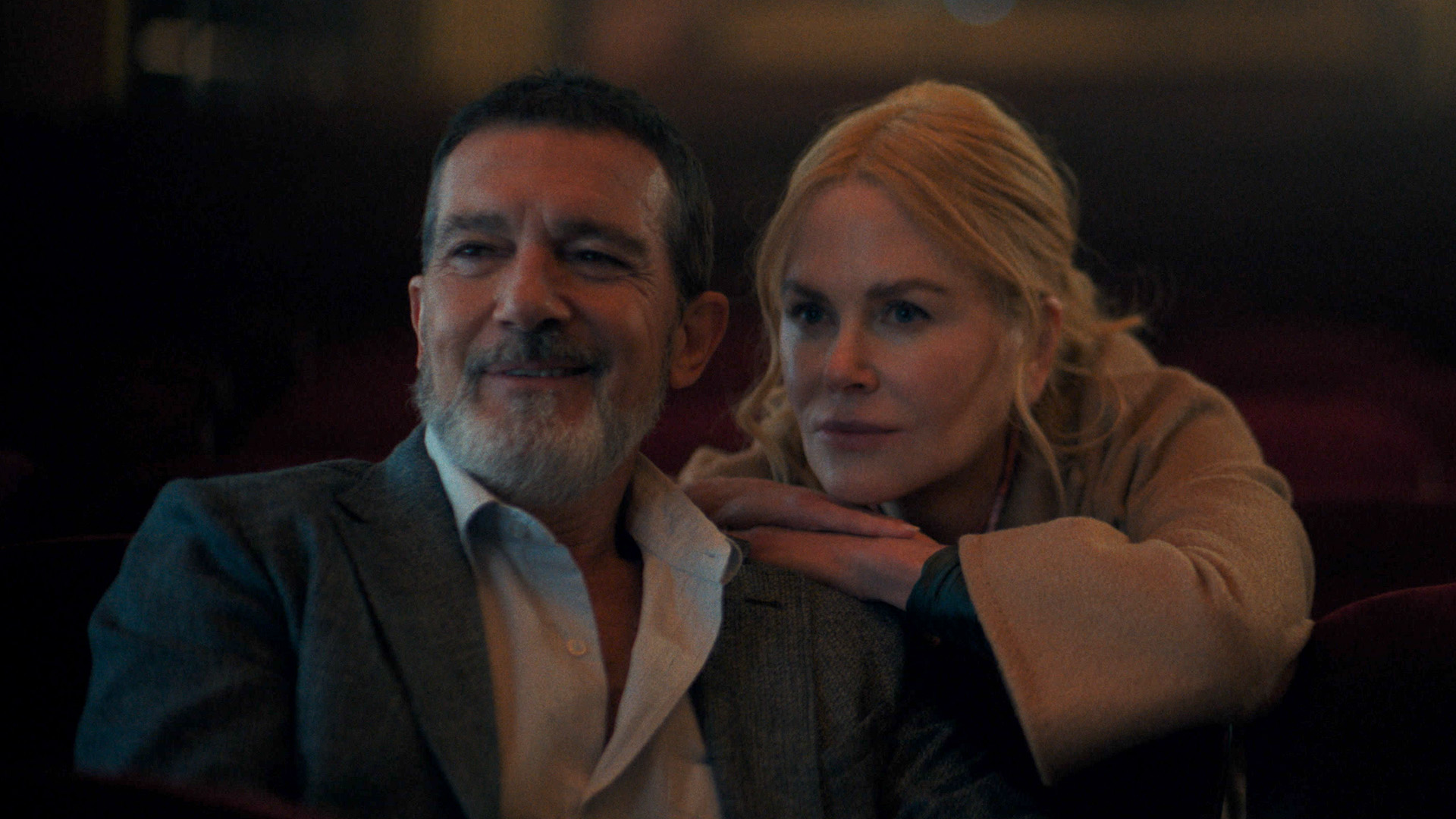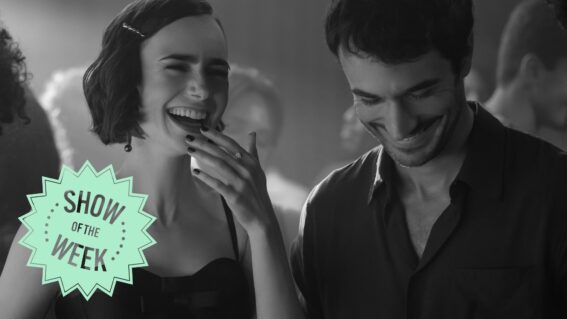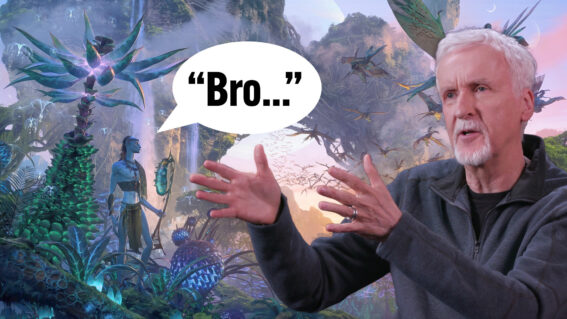Babygirl triumphs over Hollywood’s clichéd cougar narrative
Babygirl takes a woman’s perspective in all its contradictory, confounding nuances – including desire.

One of the most talked-about movies in ages is finally approaching, with the imminent release of Babygirl. Cat Woods sees how vital it is in enforcing a woman’s perspective in all its contradictory, confounding nuances – and defying conventional Hollywood “wisdom” about female desire.
Until Halina Reijn’s extraordinary Babygirl, I’d been entirely convinced that Hollywood was incapable of making an older-woman, younger-man story that even vaguely respected women over 40.
In fairness, Nicole Kidman’s dismal rom-com with Zac Efron, A Family Affair, was thoroughly puzzling. Here’s the statuesque, stunningly formidable Kidman and a muscle-headed, dull-as-dishwater juvenile and audiences are genuinely going to believe that simply because he’s young, he’s eminently desirable to a woman over 45? It’s patronising, and it fundamentally dishonours women and the complexity and fascination of women’s sexuality.
Then there was the yawn-worthy The Idea of You, in which the horribly old Anne Hathaway (she’s 42, if you don’t mind) and Nicholas Galitzine fall in love. The take from director Michael Showalter appears to be this: Anne’s character is a single mum and therefore any man under 30 with chiselled abs and a cute smile is like manna from heaven. What, though, could he possibly see in a woman as haggard as Anne Hathaway? It must be her mature, motherly charms.
Anyway, having sloshed sarcasm all over the place, it’s time to get serious and straight to the point. I was prepared to go into Babygirl and cringe through another hot Hollywood take on what women seemingly want (young men, barely out of their teens, with zero personality and an eye-popping six-pack of abdominal muscle).
Instead, along with an audience of compelled cinema goers, I thrilled in a different prospect altogether. Was it because the writer and director is a woman? Perhaps. It’s hard not to make that case.
As CEO Romy Mathis, Kidman is the epitome of perfectly manicured, hyper-efficient productivity. In sky-high stilettos, her Botoxed brow never shifting, she’s built an empire based on high-tech, automated manufacturing and she’s revered by industry competitors and her own staff.
Her life is regimented to the nth degree. She’s constantly on her phone, marching from meeting to meeting, and then arriving home to a husband who wants to ramble about his theatre work while offering her (literally) the most boring, anticlimactic, missionary position non-orgasmic sex of her life.
Superficially, the idea of a 20-something intern with cut glass cheekbones, big eyes and great biceps marching into her life offering amazing sex sounds like Family Affair 2.0. Harris Dickinson is no Efron, though. He is phenomenal as the sociopathic, manipulative, confusing and thoroughly seductive Samuel. There’s definitely a sense of the bruised bloody, charming Tyler Durden (Brad Pitt) from Fight Club and Oliver Quick from Saltburn in his frisson of madness.

There are also shades of Saltburn in the systematic, tactical way he goes about seducing Romy. Her ugly, noisy, humiliating but fierce orgasm at his hands (again, literally) on the floor of a cheap hotel room depicts Kidman stripped of vanity and the rigid control over her body and appearance that rule her life. Kidman is extraordinary in Babygirl, whether you buy every aspect of this storyline or not.
With the perfect 19-year marriage to a loving husband, two daughters, a mansion, and multi-level, central New York City offices, she seemingly couldn’t want for anything more. But, this is the paradox of hitting 40 and beyond. Women have stakes in the game to varying degrees and in various ways.
Perhaps we’ve built a career and a reputation, we’ve achieved all the degrees and certificates, we’ve put up with the awkward, highly sexualised, misogynistic remarks throughout our 20s and 30s in various office settings, and we’ve amassed a mortgage, a reliable family car, a relationship with some mileage on it, and perhaps—even a hobby or two.

But the thing about achieving all the landmark things that society has taught women they should be satisfied with, is that it’s not all we want.
That’s not to say the only thing we want is a 20-year-old with a hot body to give us the best orgasm of our lives and then we can get back to filing our tax returns and debating the best eye cream for fine lines. Thankfully, Babygirl is significantly more sophisticated than that old Hollywood trope.
Dickinson’s Samuel is a masterful manipulator. He gets right to the crux of this whole movie in a scene, locked in a room with Romy. He’s reminded her that all he needs to do is reveal their sexual relationship to Human Resources and she’ll lose her job, her reputation, her family, and her life as she knows it. It’s a harrowing threat, and he reminds her that the stakes are very high for her.
I’m paraphrasing, but there’s a moment where the two lock eyes and Samuel says, “You’re looking at me like I might take everything. Do you want me to take everything?”

The silence that follows is an invitation not only to Romy, but to the audience. What if your life was so full, so scheduled, so mundane in its predictability and normality that throwing a hand grenade in the form of a threatening stranger into the midst of it actually does appeal?
Once you get to 40, you’re in a push-and-pull between the woman who focused solely on climbing career ladders, building a legitimate income and material accoutrements and the future you have to prepare for, and all the people and pets you need to take care of as a responsible adult.
And in that period between who you were, and who you could be, exists a massive tension and madness if women are prepared to confront that daunting, wonderful question: what do I really, really want and now that I’ve accomplished so much of what I was taught to succeed in, is this all there is?

In Romy’s desperation to exist in two worlds separated by secrecy—between a vaguely unhinged, beautiful and dangerous Samuel and her reliable, intellectual, ordinary husband, Jacob (Antonio Banderas) and home—she represents that same battle so many women have.
Maybe the alternative to adult women’s sometimes humdrum existence of making small talk about the weather and complaining about interest rates or misbehaving children, is not a dominant-submissive sexual affair, but there has to be a sense of danger for us to appreciate all that we value and all that is at stake.
The ending of Babygirl is likely to leave audiences debating over how satisfying they find it. That’s fitting for a movie that provokes and poses questions more than it offers clear-cut answers.
What is undeniable is how vital Reijn’s movie is in enforcing a woman’s perspective in all its contradictory, confounding nuances. It has already scored a number of awards and critical praise, so hopefully Hollywood bigwigs are paying attention to what this movie gets right rather than simply feeding us more “cougar”-style narratives.
Even in the perfect Chanel tweed suit and Louboutin heels with a mansion and the front cover of Forbes, women in their 40s and beyond still want a sense of danger and the thrill of all the possibilities that still exist post youth. And perhaps, they want a throbbing, groaning, utterly mind-boggling orgasm.
























